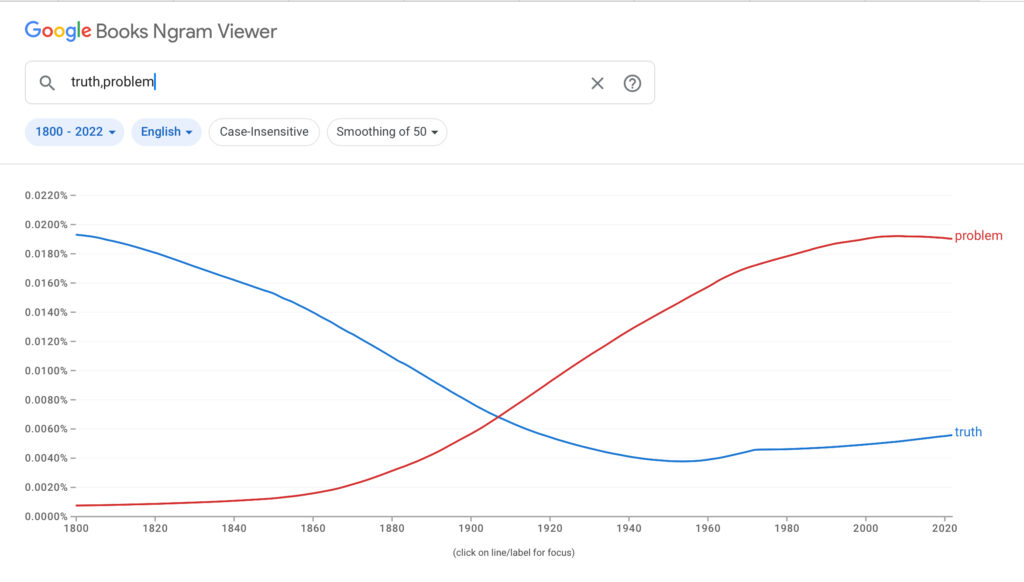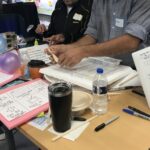“The classic, pervasive seduction to designers has been to find a solution instead of the truth.”
Richard Saul Wurman, founder of the TED Conference, Architect
How often do we jump to solve problems before we truly understand them? I’ve seen this play out countless times—not just in others’ work but in my own. It feels natural, doesn’t it? Finding a solution is satisfying. It’s tangible. It makes us feel like we’re moving forward.
But I’ve also learned, sometimes the hard way, that the most meaningful progress comes when we pause to seek the truth first. Without it, even the cleverest solutions can miss the mark.
So, let me ask you: when was the last time you slowed down to really understand the challenge in front of you?
What Does It Mean to Seek Truth?
Truth-seeking isn’t about being perfect or knowing everything. It’s an act of discernment—a way of stepping back and asking:
– What do we really know?
– What do we think we know but haven’t tested?
– What do we believe—about ourselves, our teams, or our situation?
– What do we perceive—and what might we be missing?
Truth-seeking isn’t just about clarifying the past or present. It’s also about looking ahead. What’s your intention for the future? Are your actions aligned with where you want to go?
Why Do We Struggle to Seek Truth?
“Sometimes it’s necessary to go a long distance out of the way in order to come back a short distance correctly.”
Edward Albee, Zoo Story
Let’s be honest—truth-seeking isn’t easy. It takes time, and that can feel like a luxury we don’t have. There’s pressure to act, to deliver, to solve. But how often does rushing lead us to the wrong place?
Here’s an example: I’ve had experiences where a client insists they need a new website—or a new [fill in the blank]. They aren’t getting the sales or activity they once did and are certain their current site isn’t serving them well anymore.
As the consultant, you could trust that the client knows their business best and jump straight to building a new website. But that’s not the approach I’ve seen work. Instead, we pause. We talk to people—stakeholder interviews, customer conversations—and we listen. Not just to what’s being said, but to what isn’t. We pay attention to patterns between interviewees, testing assumptions along the way.
More often than not, we discover that the website isn’t the real problem. That’s the easy, tangible fix. What’s actually going on? Maybe they need to restructure their team, better understand their customers, or address issues with their product offering. These are the truths that shape everything else.
When we uncover those truths, we can be much more focused and clear about what to prioritize. The solutions become sharper, more impactful, and better aligned with the organization’s goals.
Are We Culturally Wired to Skip the Truth?
I’ve noticed something interesting when reflecting on how we frame challenges today. It seems our culture—especially in organizations—has shifted toward “problems” as the center of our attention. Solving problems is seen as the ultimate goal.
But what if we asked: are we framing this challenge the right way? What’s the real story here? Are we looking at the truth or just the symptoms?

The designer Charles Eames once said, “Never delegate understanding.” It’s a reminder that truth-seeking isn’t just an intellectual exercise—it’s a responsibility.
A Question for You
What would change in your work if you started with truth instead of solutions?
I’ve found that the best work—whether from individuals, teams, or organizations—starts with asking the hard, honest questions. Truth-seeking may not feel efficient, but it ensures we’re solving the right problems.
What do you think? Where have you seen truth-seeking make a difference in your work—or where have you skipped it and regretted it later?

